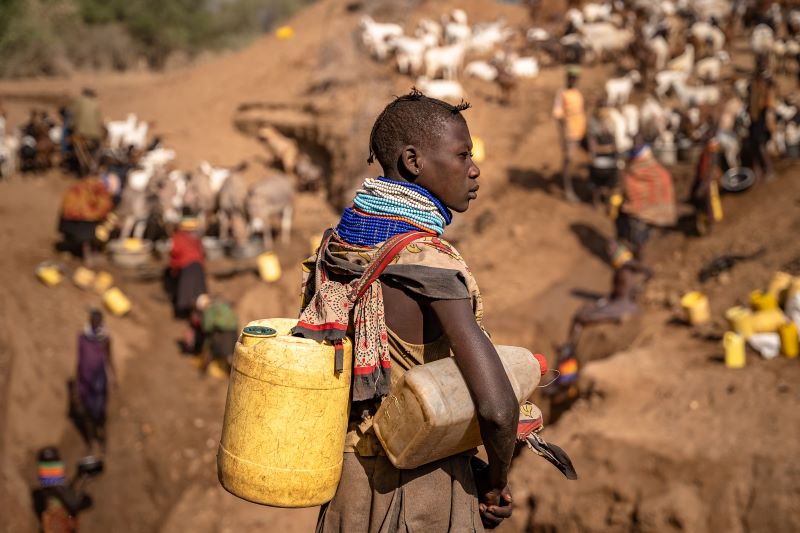Comment: Climate action initiatives will only achieve their potential if women get more decision-making power and access to finance
Nicoline de Haan is director of the CGIAR GENDER Impact Platform.
The centrality of gender to climate action has been recognised by the Azerbaijan presidency of COP29, which assigned November 21, the second-from-last day of the UN climate negotiations, as Gender Day.
However, gender equality should really feature as an urgent and cross-cutting issue from day one because climate change is widening existing gender gaps and severely impacting women’s livelihoods and well-being. Women can be powerful agents of climate action if included in decision-making processes and given access to the right resources.
COP29 Bulletin Day 6: Climate march tamed and gender talks gridlocked
From smallholder farmers to wage labourers, small and medium enterprise owners and even farmer producer organisations, women’s reliance on agriculture and natural resources to make a living renders them more vulnerable to climate shocks and stressors than men within agriculture.
Recent evidence shows that for every 1°C increase in long-term average temperatures, women farmers are losing 24% more of their income than men. Furthermore, climate extremes such as floods and heatwaves are costing women-headed households $53 billion more per year than male-headed households.
Gender equality is especially key to COP29 negotiations given the special focus on climate finance, an area in which women are frequently disadvantaged. Climate finance is disproportionately harder for women to access, more so in low- and middle-income countries, where women urgently need gender-responsive climate adaptation support. So, when it comes to climate negotiations, we must include women from the beginning.
Half of the agrifood workforce
To fulfil the COP29 presidency’s bold vision to turn ambition into action, climate action initiatives need to take into account the needs and contributions of all of the global population.
Across sub-Saharan Africa and South Asia, women comprise at least 50% of the total workforce in agrifood systems. Yet, within these roles, women face a multitude of issues that hinder their productivity and capabilities for climate adaptation.
These issues include limited access to resources such as land, lack of access to climate information, exclusion from decision-making processes, restricted access to extension services and even uneven labour demands.
Evidence also shows that existing climate-smart agriculture solutions fail to account for these hurdles women face in agrifood systems.
Adaptation Fund head laments “puzzling” lack of pledges at COP29
For example, mobility restrictions on women due to religious and cultural norms in Kyengeza, Uganda, mean that men are twice as likely as women to travel to purchase improved seeds or visit markets, both of which are crucial factors to agricultural productivity and climate adaptation.
Incorporating gender-responsive and collaborative approaches to developing and implementing climate-smart agriculture solutions can ensure that solutions are accessible to and benefit both women and men equitably.
Secondly, more climate finance and private investments should be channelled towards gender-responsive climate adaptation.
Women in agrifood systems often find it hard to access credit and financial services that shield them from climate change and its impacts on livelihoods. As a result, women find themselves exposed and vulnerable to disasters that they could have prepared for if more finance and resources were available to them.
More finance for women
Blended finance approaches that derisk and encourage the channelling of private capital towards climate finance initiatives can offer pathways to ensuring more finance reaches women. As a result, this will help women to build resilience against climate uncertainties and extremes.
For example, the Global Agriculture and Food Security Program’s Business Investment Financing Track (BIFT) is an innovative blended finance innovation that aims to unlock private and climate financing to empower rural communities while advancing climate resilience for those whose livelihoods depend on agr
Read More

